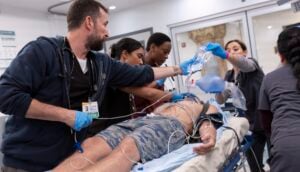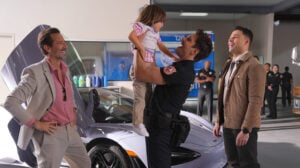John Carter, is that you?
No, The Pitt’s Dr. Michael “Robby” Robinavitch is definitely not John Carter, but Carter is the character that made Noah Wyle famous, and it’s the first to come to mind when you think of the actor.
Putting a stethoscope around his neck was guaranteed to bring about comparisons.
And, frankly, Dr. Robby is who I would imagine John Carter becoming years into his career. After decades in the trenches of emergency medicine, Dr. Robby knows who he is, what works in the ED, and how to handle cases that would turn others’ stomachs.
A Lot to Establish
However, spending 15 hours on one ED shift affords much more time to understand what doctors and patients experience and a lot less time for things like romance. I’m very OK with that.
The first two hours of this new drama establish the tone of the show and help acclimate viewers to the heart-pounding reality of the emergency department of the fictional Pittsburgh Trauma Medical Center.
It’s a huge cast with oodles of characters. In addition to the hospital staff and medical students, the patients will be, in effect, series regulars throughout the first season.
In other medical dramas, patients tend to come and go. Most episodes of medical dramas treat cases like a Very Special Episode, in which the discussion around a certain patient, their ailment, and its causes are trained on the hour they arrive.
The Pitt’s 15-hour-shift format affords us the best opportunity to understand what it’s like being a patient, a loved one, or one of the many tasked with making their experience as pain-free as possible.
While the show handles it effortlessly, Dr. Robby and his staff are at odds over how to best accomplish that and the hospital execs don’t hold the ED’s patient satisfaction ratings in high regard.
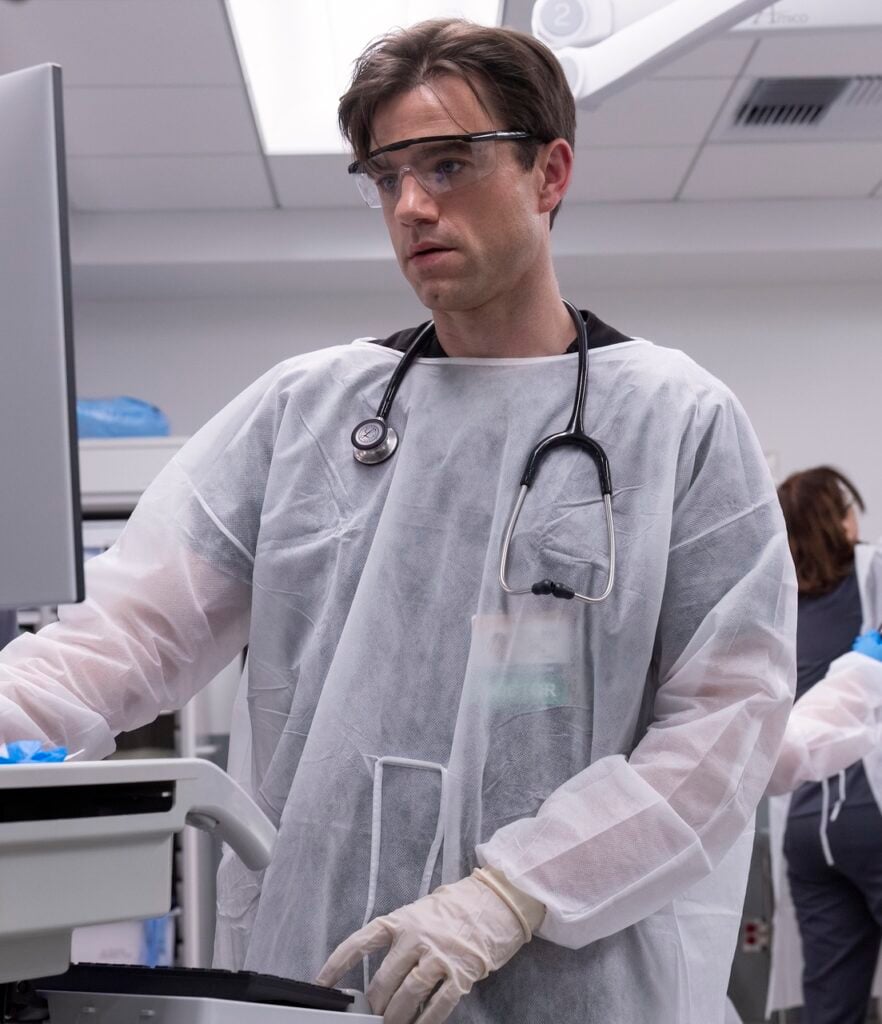
What makes this point worth exploring, although somewhat annoying to be revisited several times in one shift, is that it helps us understand how frenetic treating patients in an emergency situation really is.
The department is stretched very thin, yet they work tirelessly to ensure that everyone in their orbit feels seen and receives the necessary treatment to send them on their way to begin the next patient in line.
Showing the Everyday Challenges of the Medical Profession
The Pitt Season 1 premiere episodes do an excellent job of showing just how difficult that task really is, but they also show that hospital staff understand that they need to save their energy for those who need their help the most.
If an angry man in the waiting room with an unknown ailment is pissy and demanding attention, he gets the brush off because the people before him take precedence and with good reason.
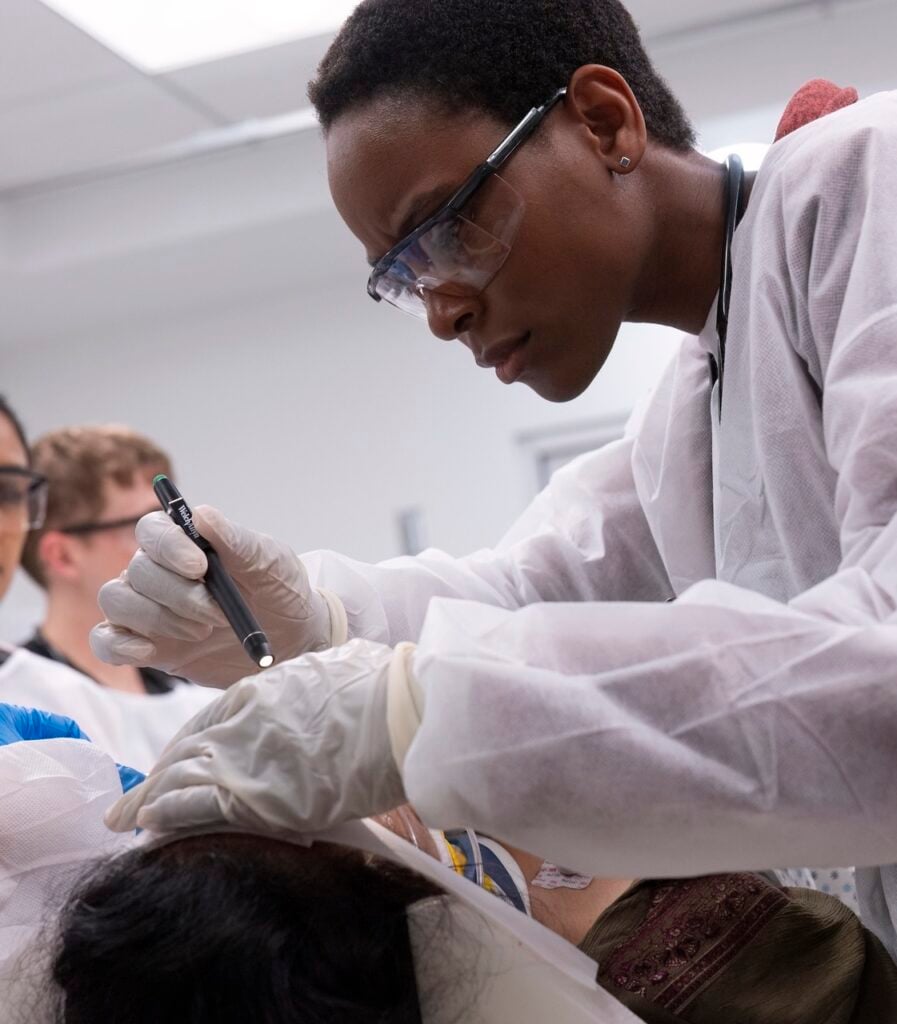
This typical day already includes parents who must come to terms with losing their son to a drug overdose, children who need to let their elderly father go, and a woman who speaks no English with a missing foot.
How doctors and nurses have the capacity to adequately attend to myriad cases that demand something different each time is a true mystery. I get tired and irritable after eight hours at the computer. How on earth does the medical profession accomplish so much without losing it?
The Pitt and another show that premiered on Prime Video today, On Call, go to great lengths to help us understand a day in the life of our modern heroes. Medical professionals and law enforcement aren’t superheroes, nor do their daily woes slide off their Teflon backs. They’re people just like you and me.
Stepping into their shoes for even a short while can be beneficial. It’s hard, and we may not like what we see, but getting a feel for how these essential services work is one of the true gifts of the TV medium, which can explore scenarios in great detail.
As I said above, The Pitt Season 1 Episode 1 introduces us to a lot of medical professionals. This is a sprawling cast, and getting to know them takes time.
Making this day unique is being the anniversary of Dr. Robby’s mentor who died amidst the Covid pandemic. It’s the first year he hasn’t taken the day for himself.
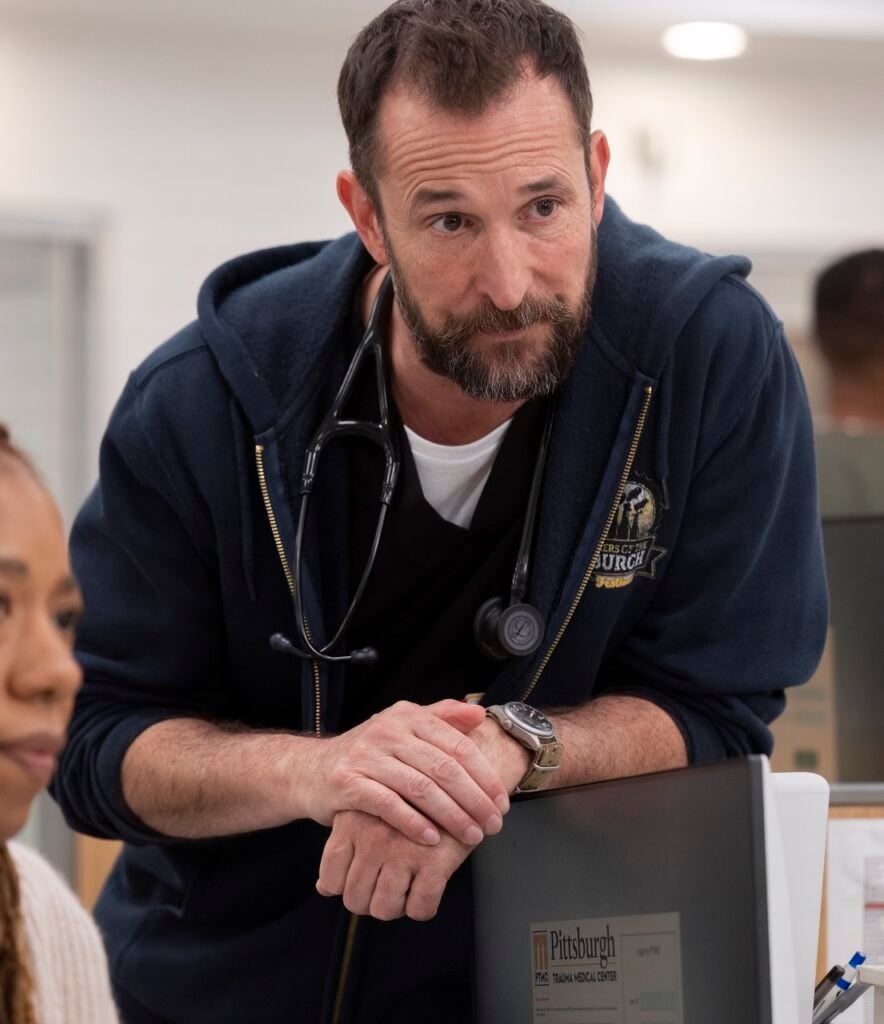
What that means is that the Dr. Robby we met during this 15-hour shift may not be the man we would have met yesterday. Today, his mind is overcome with flashbacks to that tense time and what he and many others lost.
It’s impossible to tell if any of his aggravation with his residents, medical students, or coworkers can be attributed to that, but charge nurse Dana certainly feels the need to point it out more than once.
It’s probably not the best day for a new rush of students, interns, and residents to begin their rotation, but it could also be the very reason Dr. Robby chose to break with his recent tradition and brave his worst memories for another day on the job.
Pretty quickly, those new faces around The Pitt get personalities.
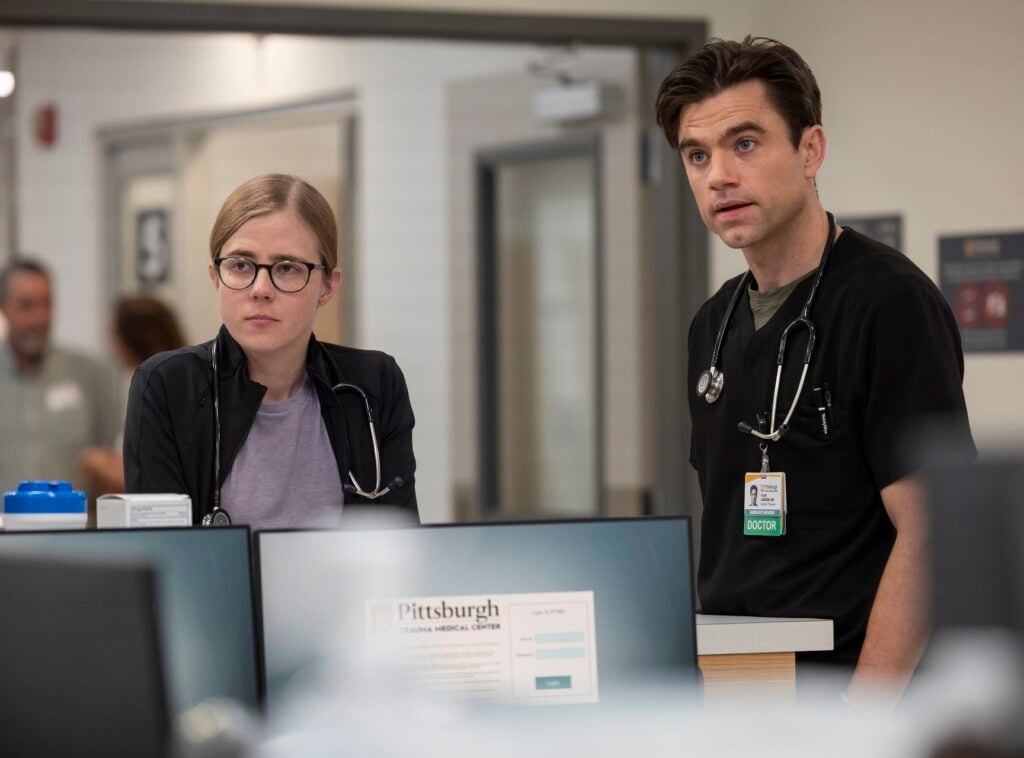
Second-year resident Melissa ‘Mel’ King is fresh from a rotation at the VA Hospital. She’s a recent transplant to Pittsburgh after finding a suitable living situation for her special needs sister.
Mel reminds me of Felicity Smoak from Arrow Season 1. She’s eager to please and fit in, and her capable skills promise she’ll do just fine.
Intern Trinity Santos is brash and uses her sarcastic persona to deflect whatever actual feelings she has. She’s more interested in doing new procedures than she is in making friends, which is evident as she nicknames those around her based on their least admirable qualities.
Fourth-year medical student Dennis Whittaker is skilled and compassionate, and Santos immediately nicknamed him “Huckleberry” for his kind-hearted demeanor.
The new recruits are rounded out by Victoria Javadi, an unusually young third-year medical student whose parents are renowned physicians.
Being a nepo baby only adds to her insecurities, putting a huge chip on her shoulder as she navigates internal pressures to prove she deserves to be there.
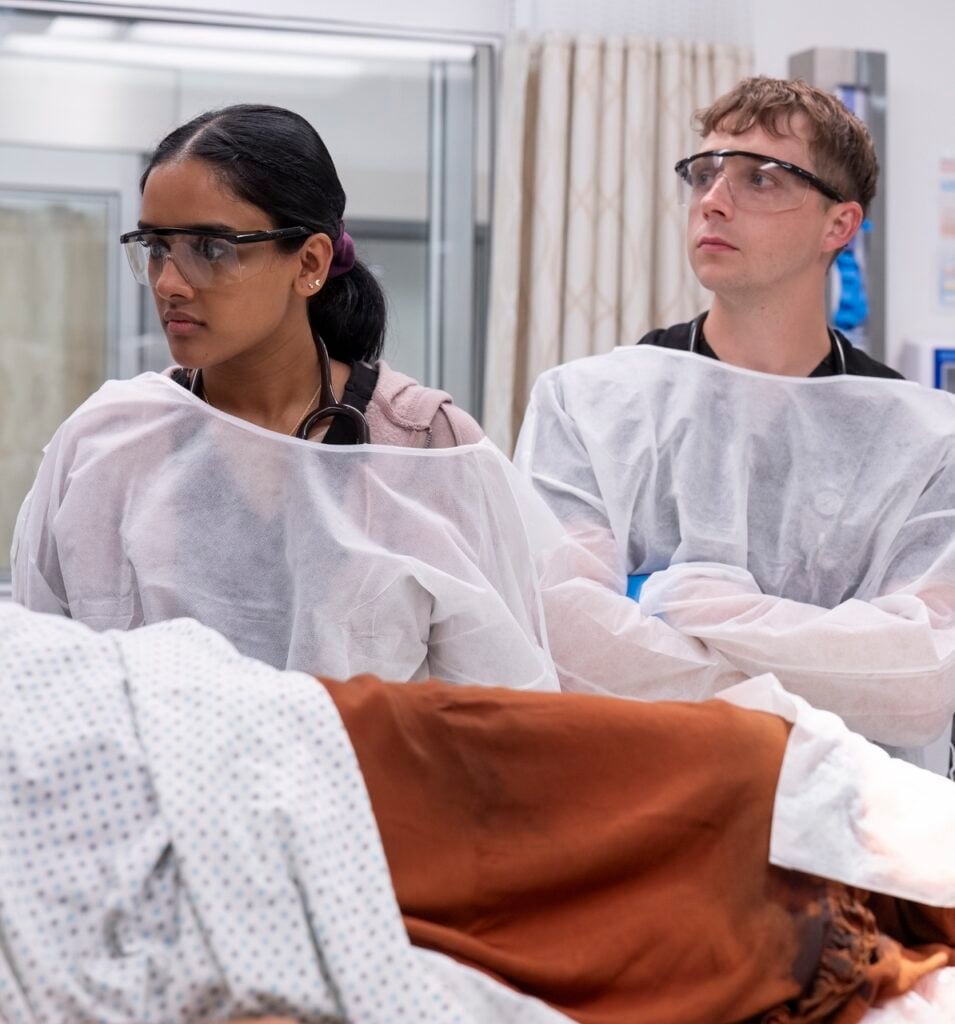
If it seems we got to know the new kids on the block better than the staff, it makes sense when you think about it. Nobody knows much about the students, so plenty of information is shared, and questions are asked.
When it comes to the rest of the staff, we’ll be making discoveries about their personalities for a while to come.
Dr. Samira Mohan is one of the most fleshed out. As the ultra patient-satisfaction doctor, she grates on Dr. Robby because she spends too much time with those in her care.
He sees people in need waiting impatiently in the waiting room, so watching Dr. Mohan attend to each patient like she’s in concierge medicine makes his skin crawl.
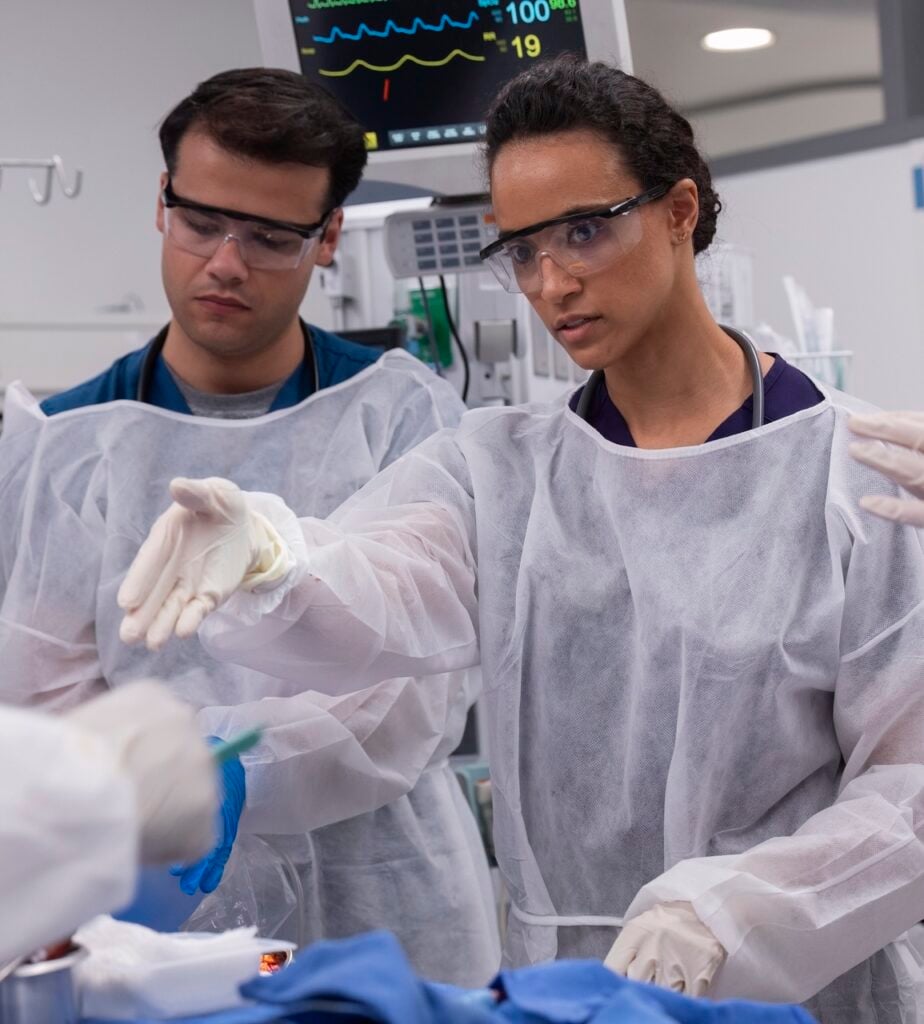
Of course, what she does has its merits. Her attentiveness allowed her to bring relief to a Sickle Cell patient who desperately needed it. There’s bound to be something in her methods that will help Dr. Robby with the ED’s Press Ganey Scores.
Yes, there is a hospital administrator who feels the need to drag on Dr. Robby about those patient satisfaction scores (36% is the goal, 8% is their score) on a day everyone knows is painful for him and when there are several new people in rotation.
It’s no wonder he’s short with her. I wanted to reach out and smack her for her insensitivity. And who the hell “recommends” an ER? I can’t think of a single time in my life that I discussed the efficiency of an emergency room with my friends.
And if I’ve been there so often that I can see the different between how they are one day and the next, then there is a bigger issue at play.
Uh, this is an emergency department, not a Taco Bell.
— Dr. Robby
Yes, that woman has a job to do, but flippantly saying that others are handling the nursing shortage better or ignoring the fact that patients become residents because other departments won’t clear beds for them isn’t going to win her any prizes from this viewer.

Dr. Collins appears to be an admired and highly skilled ER doctor, but her pregnancy may be interfering with her day. She’s had miscarriages before, so of course it’s going to be high on her mind. It will be interesting to see how pushes that aside to focus on her work.
The hot doc is Dr. Frank Langdon. Other than being an astute physician and wanting to be considered Dr. Robby’s best friend and not just his best resident, we don’t know too much about how he works yet.
But he is married with a child and is making a rash decision to get a puppy, which he maybe shouldn’t be doing on his own with 15-hour shifts. We know he won’t be the one taking care of it!
Charge nurse Dana Evans is the most important person in the ED, according to Dr. Robby. She’s got her ear to the pulse of every facet of the activities, and her cool and cheerful demeanor is an asset.
Dr. McKay is the pleasant doctor gets the “weird vibe” from Theresa and David. She wears an ankle monitor which fascinates Javadi a bit too much, and when that’s revealed, I wonder if that’s why she can spot the vibe between mother and son.
Theresa made herself physically ill to get David to a professional after she found writings that indicated he wanted to hurt girls at school. She seems like a nice enough woman, but she’s also scared to call the police on her son.
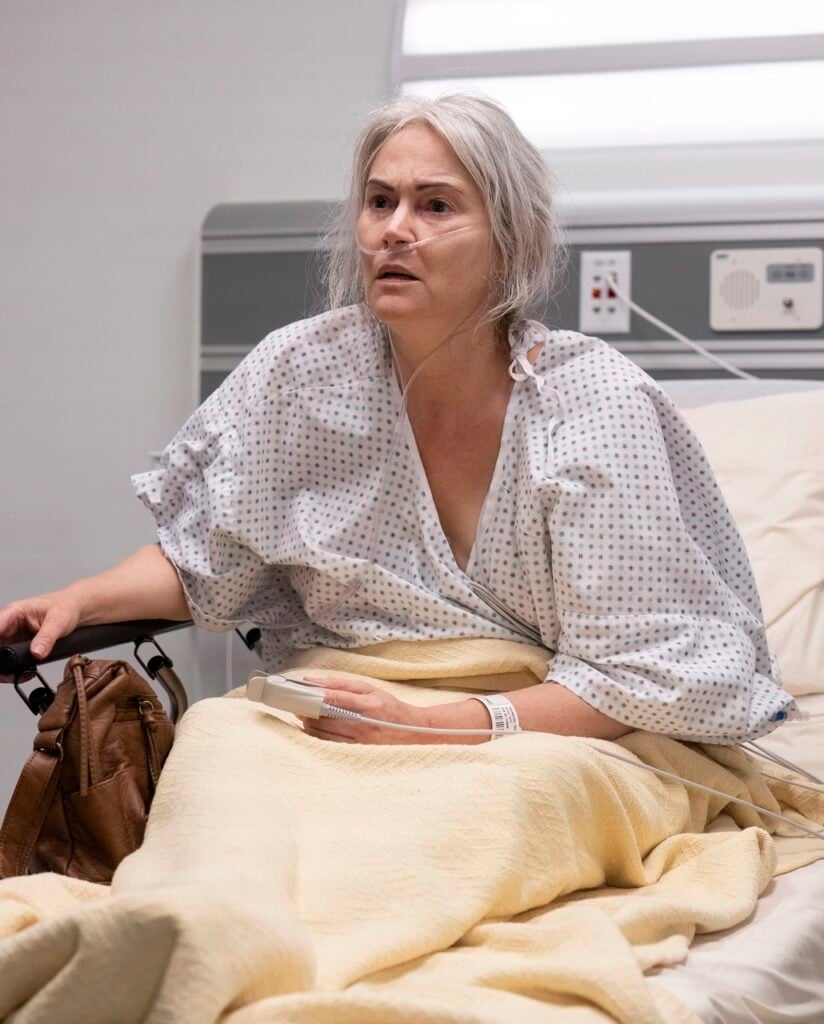
As if emergency medicine isn’t already stretched to capacity, she’s asking them to take responsibility for her son’s potential actions. I’ve seen a good portion of the season so far, and this story stretches out quite a bit with no resolution in sight.
That’s not a complaint, but rather a testament to how The Pitt unfolds. The ED docs plates are overflowing.
The two most significant cases are heartbreaking from different viewpoints.
Joseph Spencer, 79, enters the hospital with the “morning arrival of the living dead,” presenting with a fever, cough, and mild Alzheimers.
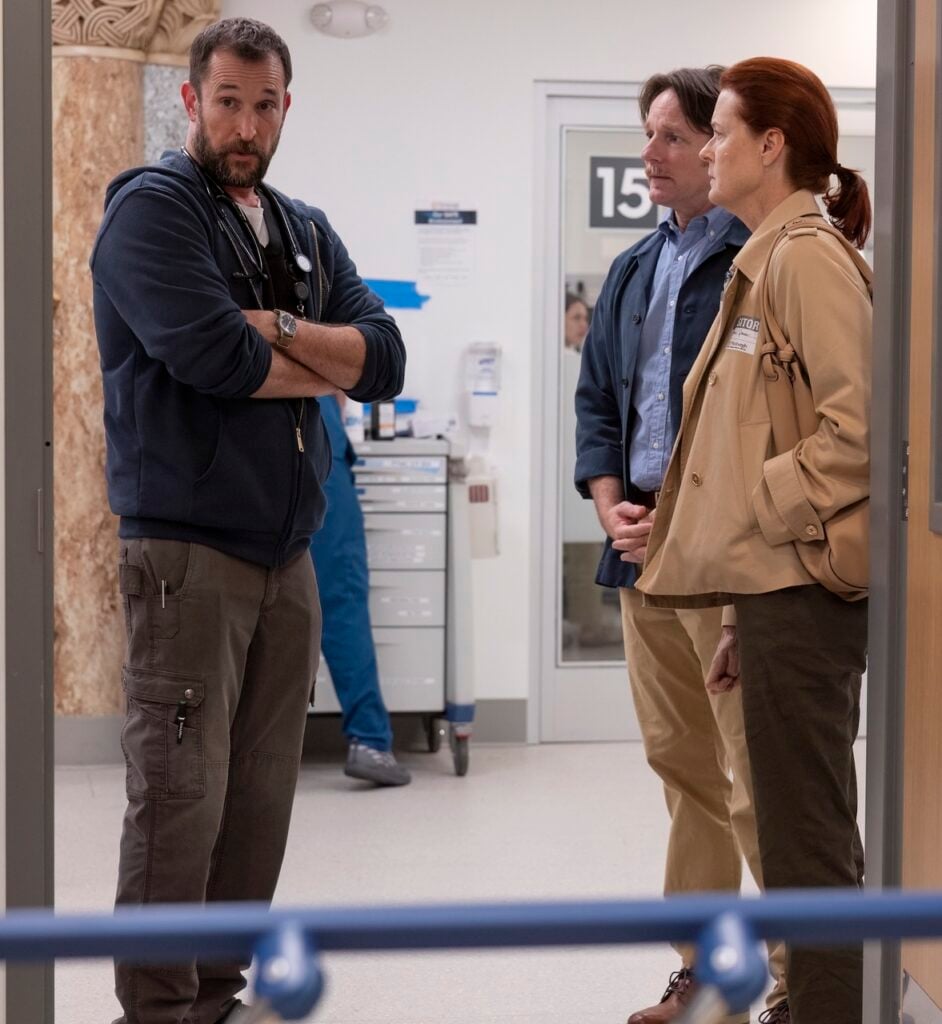
If you have aging parents, you may be familiar with end-of-life planning. This case shows how even the best-laid plans mean very little when death is staring you in the face.
Joseph is filled with confusion and fear, but his daughter isn’t ready to let him go. Instead of listening to Dr. Robby when he said, “Sometimes, allowing for a comfortable, natural death is the most humane path,” she pushed to “save” her father by intubating him.
That broke my heart, especially as it juxtaposed with the case of 18-year-old braindead Nick Bradley and his parents.
Things like that must happen every day in the life of a medical professional, but watching such diametrically opposed scenarios can’t ever get easier. While the older children have had time to come to terms with their father’s life coming to a close, the Bradleys have been blindsided by their son’s condition.
Dr. Robby struggles with the parallels. He wishes an easy death for Mr. Spencer but also arranges time for the Bradleys to realize what’s happened to Nick by giving them false hope.
That may seem cruel, but he knows that people need time to sort out what’s happening, and as eager as he may be for Dr. Mohan to reconsider the time she spends with her patients, I think part of that is because if he could, Dr. Robby would be equally as deliberate with the care he gives others.
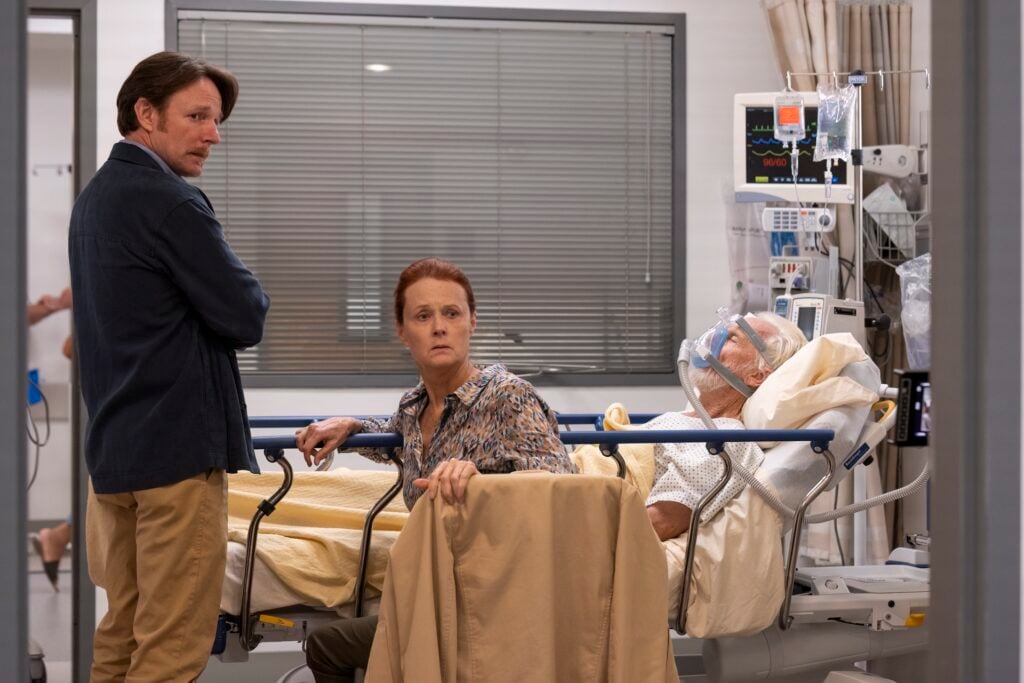
Nobody is ever ready for death, whether as a civilian or a doctor.
Every doctor struggles with the reality that their patients may not make it, and we got a good lesson in that from Whitaker, who refuses to give up chest compressions on Mr. Milton, the fellow with gallstones who just wanted a whiskey.
He’d already been down for a while when Whitaker began compressions, but he wasn’t ready to let someone go.
The Pitt Season 1 Episode 2 faded to black with Whitaker still maintaining compressions. And just like with the Bradleys, Dr. Robby allowed Whitaker to go on, knowing he needed to process that he was losing his first patient.
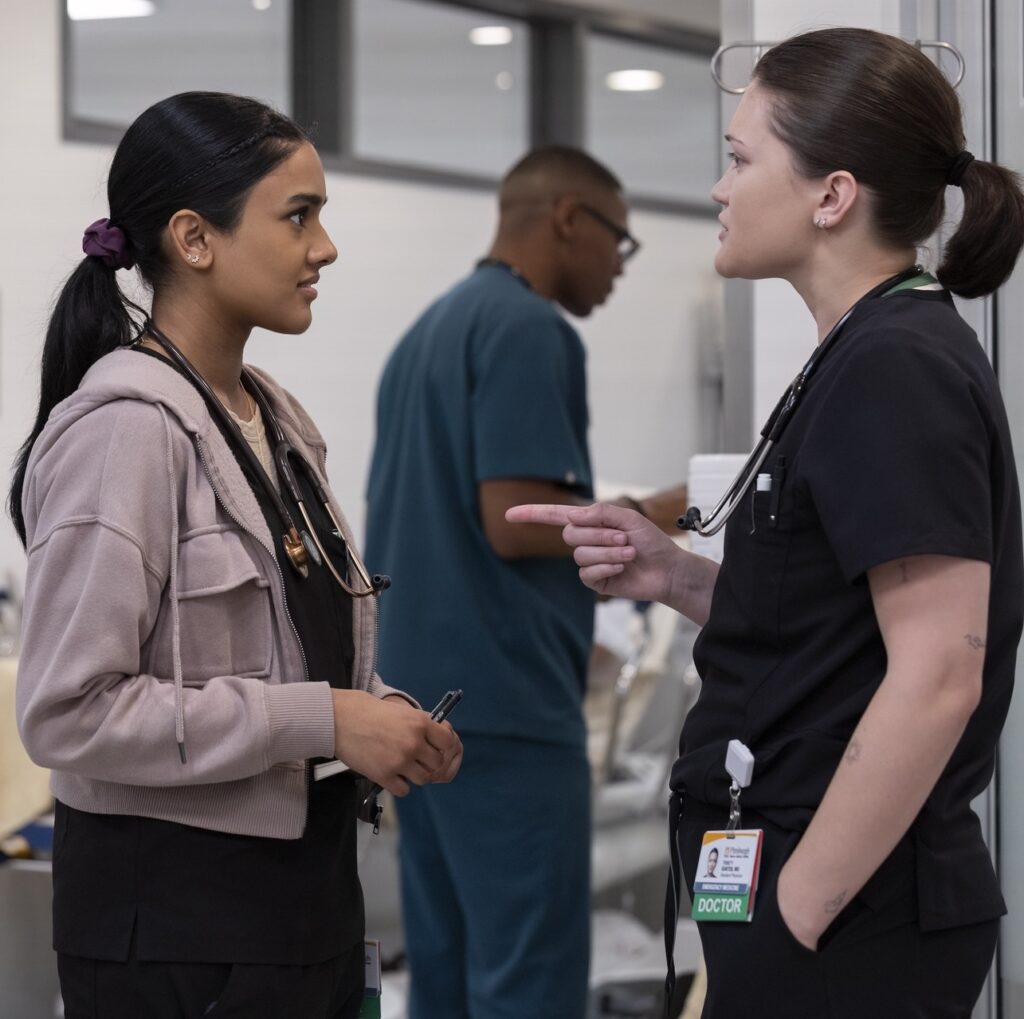
Nothing explained better Dr. Robby’s views on life and death than his after-death ritual in which those who worked on a patient engage in a moment of silence to respect their humanity and remember that this was someone’s child, sibling, parent, or friend.
It helps remind people like Intern Santos that she’s not just doing a procedure on a body to further her medical skills; she’s trying to save the life of an actual human being.
Before we close, this Pittsburgh resident wants to address the title and location of The Pitt. If you’re looking for a realistic portrayal of anything relating to Pittsburgh, you’re barking up the wrong tree.
Other than the opening scene of the cityscape and a couple of other short shout-outs to the city in episodes to come, there is nothing here to indicate we’re in Pittsburgh, where, ironically, I actually reside.
Pittsburgh is culturally unique; from their accents, their cuisine, and their obsessive love for local sports teams, residents rarely don’t show their pride in being from Pittsburgh. Ain’t none of that here, which is a shame.
Pittsburgh has been a leading city for medical innovation and research for decades. While The Pitt could take place anywhere, it shouldn’t. The people who lend their talents to this community deserve recognition. In any event, I’m sure they’ll take what they can get.
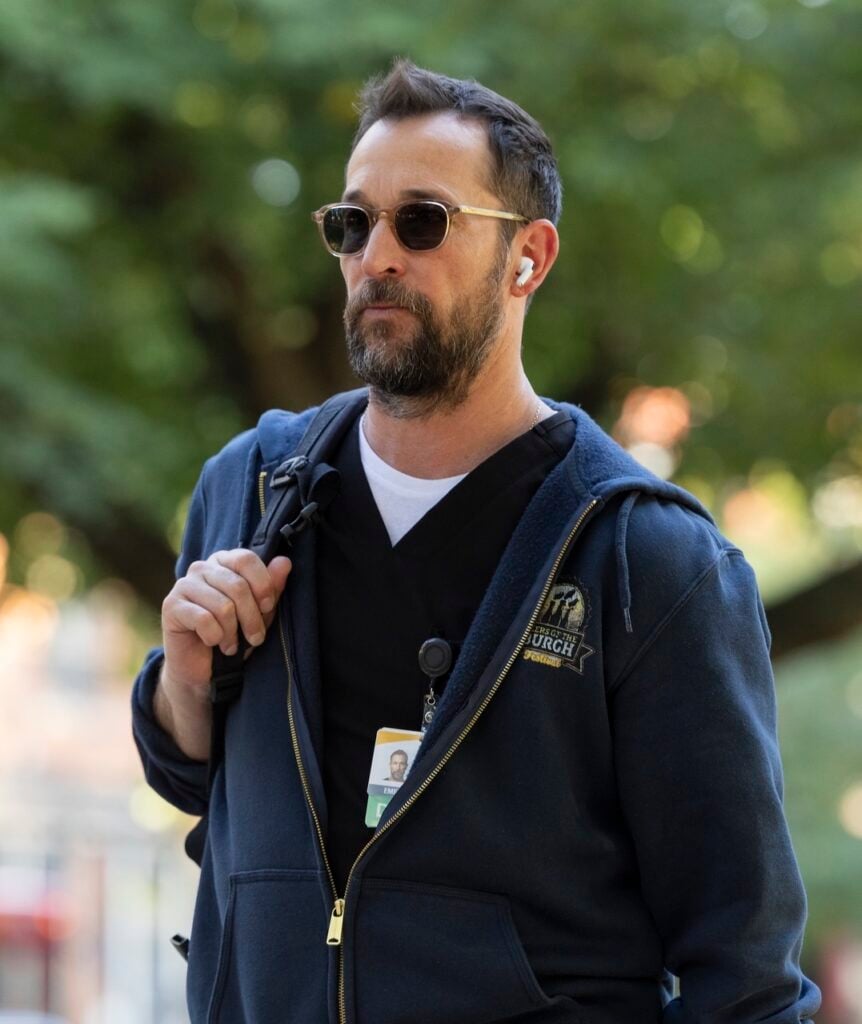
I’ve been on a medical show kick for about a year now. I’ve rewatched ER, St. Elsewhere, Medical Center, Quincy MD, and have Chicago Hope and a House rewatch on deck.
The Pitt stands up well against the greats. It’s no wonder with John Wells at the helm. Over the decades, he has been responsible for bringing some of the very best dramas to our doorsteps.
Going the 24 route with a 15-hour shift has never been done, and it does an excellent job of revealing the nuances of the profession, those things that may never spring to mind.
How much character growth can be achieved in 15 hours? We’re going to find out, but since the stakes are so enormous, I’d be willing to bet that every day in the ED brings life-changing lessons for everyone involved.
The Pitt is one of the best shows I’ve seen in some time, and I can’t wait to take this journey with you throughout the season.
What did you think of The Pitt series premiere? Please drop below and share your comments. Let’s start a lively and fun discussion!
New episodes of The Pitt premiere weekly on Max at 9/8c on Thursday nights!
Grade The Pitt Series Premiere!
The post The Pitt Series Premiere Showcases Noah Wyle’s Gift for Playing an Empathetic TV Doctor appeared first on TV Fanatic.
Source: TV Fanatic
